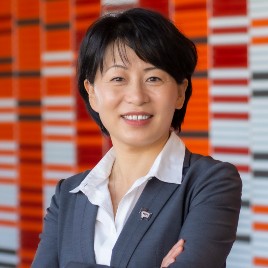Despite their best intentions, the overwhelming majority of community college students in the United States never transfer to a four-year school and complete their bachelor’s degree. But WPI is working hard to improve those prospects for transfer students interested in STEM.
The university has developed a robust and holistic support system in recent years for students who transfer here, and new agreements with four community colleges in the region offer a seamless admission path to WPI for many New England students.
“Students who earn a bachelor’s degree from WPI are in a good position to contribute to the local, national, and global economies, especially in STEM and business fields,” says WPI President Grace Wang. “By developing a strong network of support for transfer students, WPI is not only offering great opportunities to students but also helping to strengthen the regional economy for many years to come.”
WPI’s current undergraduate student body includes 211 students (just under 4 percent) who have transferred here at some point during their college experience. But just as there is no “typical” first-year student at WPI, those who transfer are motivated by multiple factors as they seek to make WPI their academic home.
Some realize they like WPI’s academic offerings or student experience better than those at the college where they started. Others choose to transfer after starting at a state university or community college. In fact, an increasing number of WPI’s transfer students each year come from community colleges.
The memoranda of understanding that Wang signed earlier this year with community college presidents in Massachusetts and New Hampshire guarantee admission for students who have completed their associate’s degree with at least a 3.3 grade point average (GPA)—and for those who have not yet completed their associate’s degree but have a minimum 3.0 GPA—and have passed both a college-level laboratory science course and a college-level precalculus or calculus 1 course. Agreements are now in effect with Manchester Community College, Middlesex Community College, Mount Wachusett Community College, and Quinsigamond Community College.





